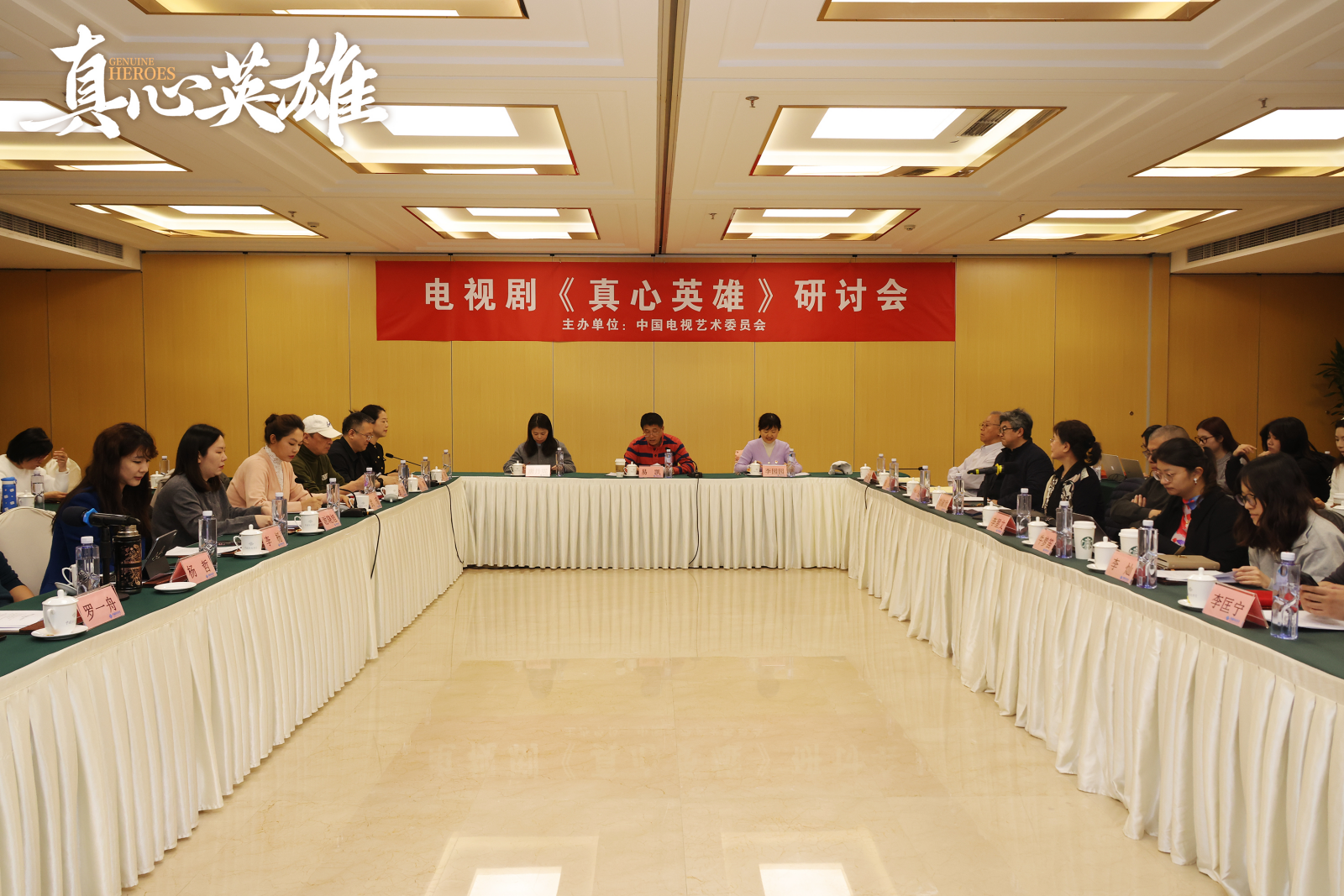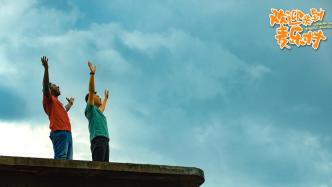
More than two years ago, the State Administration of Radio and Television approached Liang Zhenhua, hoping that he could make a TV series about China's foreign aid medical treatment. In his decades of creative career, this was undoubtedly a very special project. As the chief screenwriter, he felt a lot of pressure. big. Now this drama is being broadcast on multiple platforms, this is "Welcome to Maillot Village".
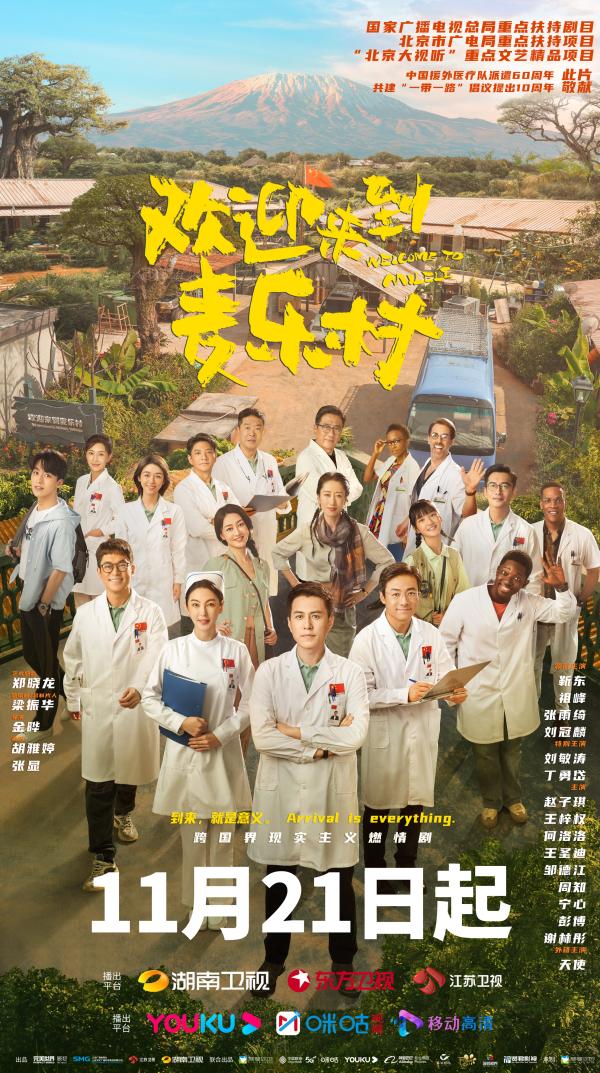
"Welcome to Maillot Village" poster
In April 1963, at the request of the Algerian Ministry of Health, China’s first foreign medical team came to Saida, a small town on the edge of the Algerian desert. Since then, batches of Chinese foreign aid medical teams have embarked on a journey of great love that has lasted for sixty years. Over the past 60 years, China has sent more than 30,000 medical team members to 76 countries and regions around the world, treating nearly 300 million patients, and more than 2,000 of the team members have won national honors from recipient countries.
"Welcome to Maile Village" tells the story of Chinese doctors who went to Africa to provide medical assistance. This is undoubtedly a great piece of history, but it is undoubtedly difficult to create a TV series with such a piece of history.
"Medical" and "Africa", how to create new ideas
It is not difficult to make a traditional work with the main theme in the public mind. The difficulty lies in how to convey the grand concept to the common people. "How to make today's audience feel that the story of 60 years of medical aid in Africa is related to them, and that the lives of these medical staff are of interest to them, so that the audience is willing to follow them on such a journey is a difficult problem in creation. "Liang Zhenhua said.
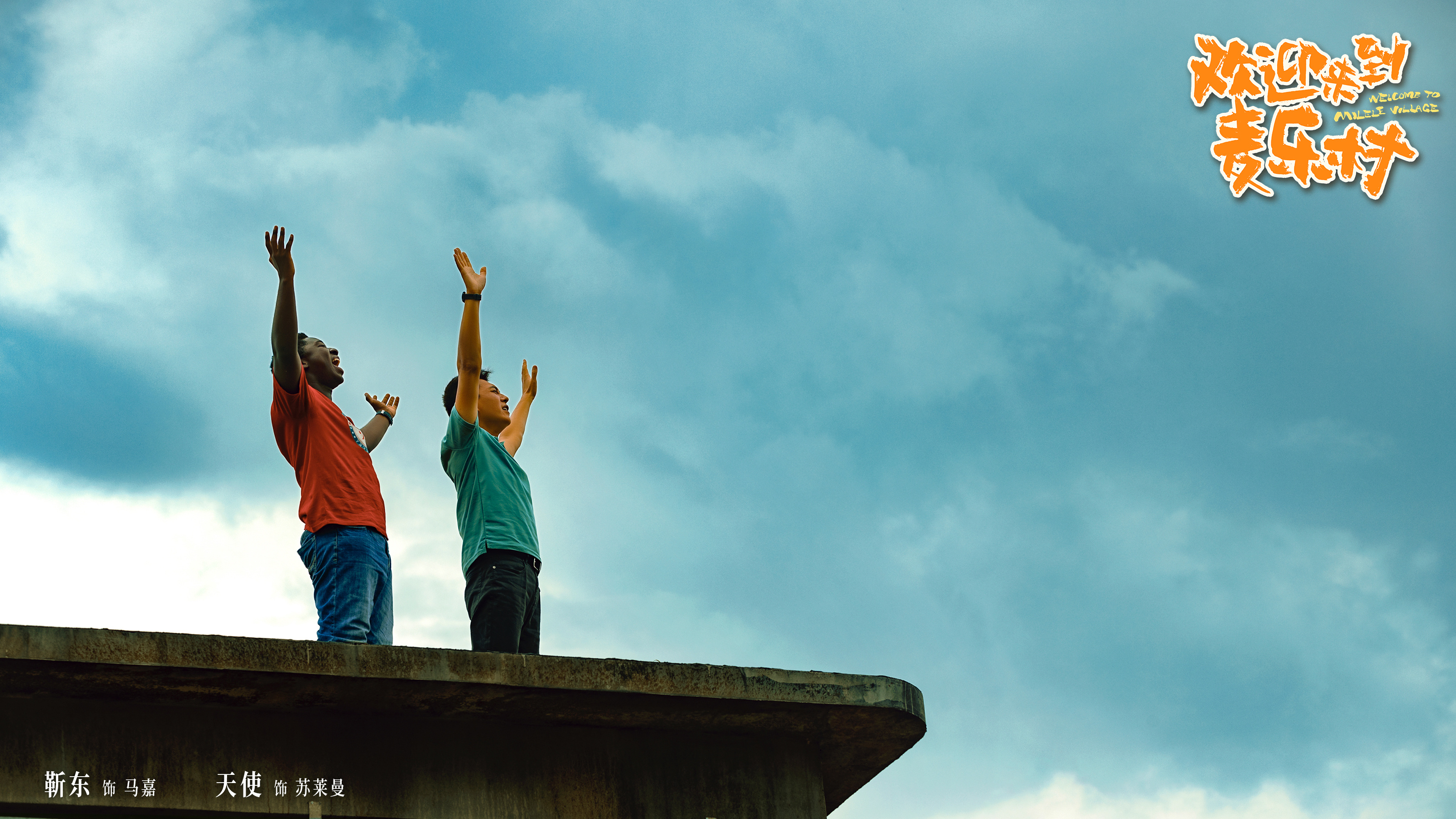
Stills from "Welcome to Maillot Village"
What initially gave Liang Zhenhua confidence was the strong support from various ministries and commissions. He mentioned that the State Administration of Radio and Television, the Ministry of Foreign Affairs, the National Health Commission, and the Beijing Municipal Radio and Television Bureau have all given various blessings and assistance to "Welcome to Maile Village". "Especially during the project process, the State Administration of Radio, Film and Television provided us with full support, from topic selection to problem solving, to overall arrangements for our in-depth research abroad, as well as full assistance in filming and post-production."
As creators, Liang Zhenhua and his team have to face many difficulties. "This project is not a purely market topic, but we still have to face the severe test of the market. This is a problem that must be solved in today's theme creation." He said bluntly, "The market is cruel, and it will not be because you are a theme. The subject matter is particularly favorable to you."
In the current market environment, sometimes the subject matter may not necessarily bring "dividends". Medical themes have become habitually tiring for audiences in the post-epidemic era; and African themes are even stranger to audiences. How to create new ideas about "medical treatment" and "Africa" and make it interesting for the audience is the first problem Liang Zhenhua faces. "I have been thinking about these two issues for half a year. There were a lot of trials and errors and many detours. Then I suddenly figured it out."
First, medical care. "I don't think 'Mail Village' is a simple medical drama, I think it is an emotional life drama." Liang Zhenhua believes that it should establish a connection with the audience in the form of an emotional life drama. "The audience comes to watch the drama to see the emotional relationship between people. What is medical treatment? Medical treatment is a weapon that enhances the character's attraction, story concentration and drama. It is here to add points to the story."
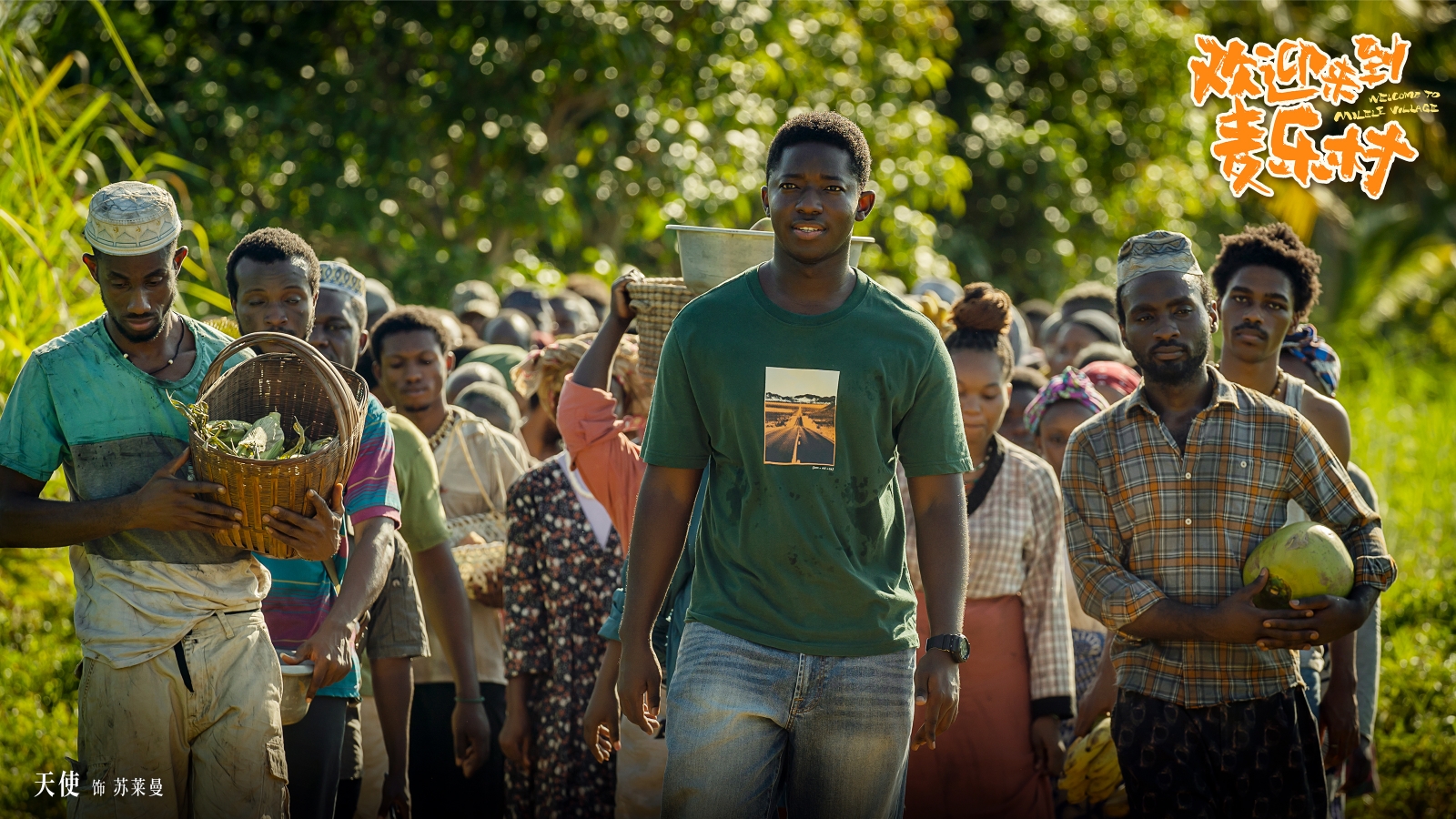
Stills from "Welcome to Maillot Village"
Second, Africa. "Most of the plots in the play are about the Chinese people, but Africa is the environment in which this story takes place. It is not only a geographical term, we also try to turn Africa into a protagonist, personifying and visualizing it. Its unique customs and humanistic charm can arouse everyone's interest. We make this 'character' as fun, humorous, and beautiful as possible."
When he found a methodology that turned "medical treatment" and "Africa" into bonus points, Liang Zhenhua put down his worries, "Next, we insist on using real and vivid narratives, hoping to make this story closer to the audience."
Empathize with the characters and follow the story
Liang Zhenhua believes that the establishment of characters is the core of film and television dramas. "People are always our starting point and focus. All concepts are built around character creation. When vivid and colorful characters are created, the friendship between China and Africa and the heavy proposition of the sixty years of the foreign aid medical team will naturally Only by blending into these people can the audience be deeply impressed.”
"Welcome to Maile Village" spent more than four episodes telling the stories of Chinese foreign aid doctors in China. When the medical team officially assembled to go to Africa to begin the aid mission to Africa, it was already the end of the fifth episode. It is undoubtedly a very bold narrative rhythm. But the detailed description of the character's state and life in the early stage is a necessary narrative strategy.
"Once in Africa, the characters must enter a high-intensity plot narrative, and there is not much space to show the inner world of the characters. In the early interviews, the motivations of the foreign aid doctors to aid Africa were particularly important. Therefore, we used four and a half episodes to The length is just to tell the audience: Why did this group of people go to Africa? This is the logical starting point for shaping the foreign aid medical team in the play to go to Africa." Liang Zhenhua said bluntly, "Only if the audience likes these characters and is willing to follow them Only through the journey of life and coming to Africa with curiosity about the fate of its characters can we naturally accept the contribution of medical aid to Africa."
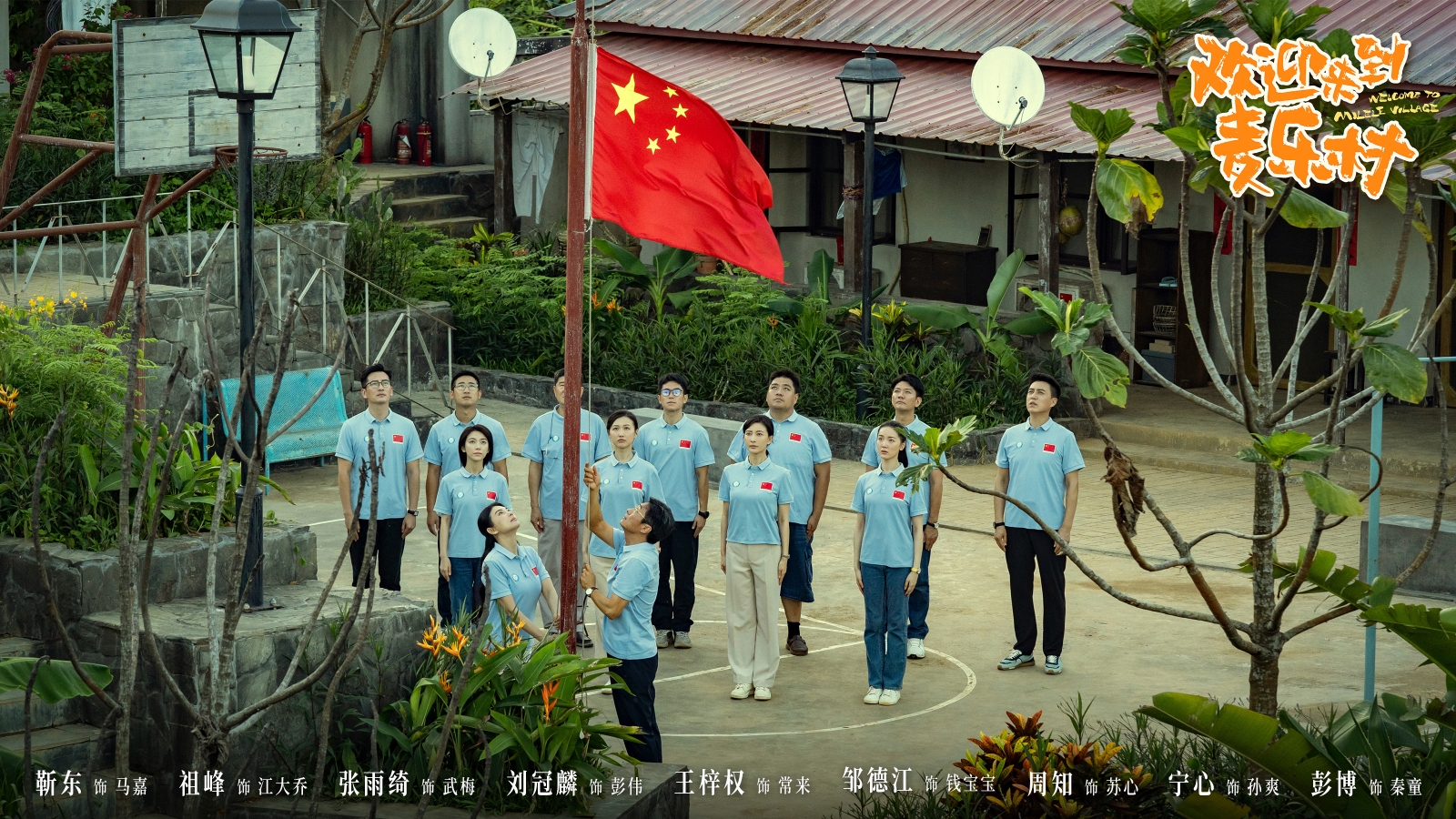
Stills from "Welcome to Maillot Village"
Liang Zhenhua's parents are both doctors, so he is very familiar with the status of doctors' families. He integrated his life experience and observations into the creation of "Welcome to Maile Village". Take the protagonist Ma Jia as an example. He is a doctor with a distinctive personality. He has a sense of belief in the medical profession, is very caring for patients, and has very good medical skills. However, he is quite arrogant and willful in life and does not take into account the feelings of others. .
"Such people are actually everywhere in life. They live in their own world and feel that they don't need to rely on others because of their talents. When the personalities of such people collide with social disciplines, a lot of drama will occur, and they often find themselves I fell into a difficult situation inexplicably." Liang Zhenhua concluded, "In the workplace, ability is important, but the ability to deal with others, empathy, collaboration, and self-regulation are also important."
In the play, Ma Jia is forced into the classic dilemma of a middle-aged man: career bottlenecks, and the relationship between husband and wife is facing a seven-year itch. Amid burnout and numbness, he struggles to make progress. In the first four episodes, the scene of Majia climbing stairs in the hospital is repeatedly shown. This is his way of thinking and relaxing after work. Liang Zhenhua said that during interviews and surveys, he noticed that some surgeons would climb stairs after intense work to keep fit or relax.
"Surgeons need very good physical fitness. My father is a surgeon. He often stands on the operating table for seven to eight hours, or even twelve or thirty hours. It is difficult to do this without extraordinary physical strength. ." Liang Zhenhua bluntly said that he likes to add some carefully designed symbolic scenes into his works, rather than purely relying on lines to express characters. "The vivid detail of climbing stairs is also an image of climbing. Ma Jia often climbs to the rooftop to look into the distance, which is consistent with his competitive character."
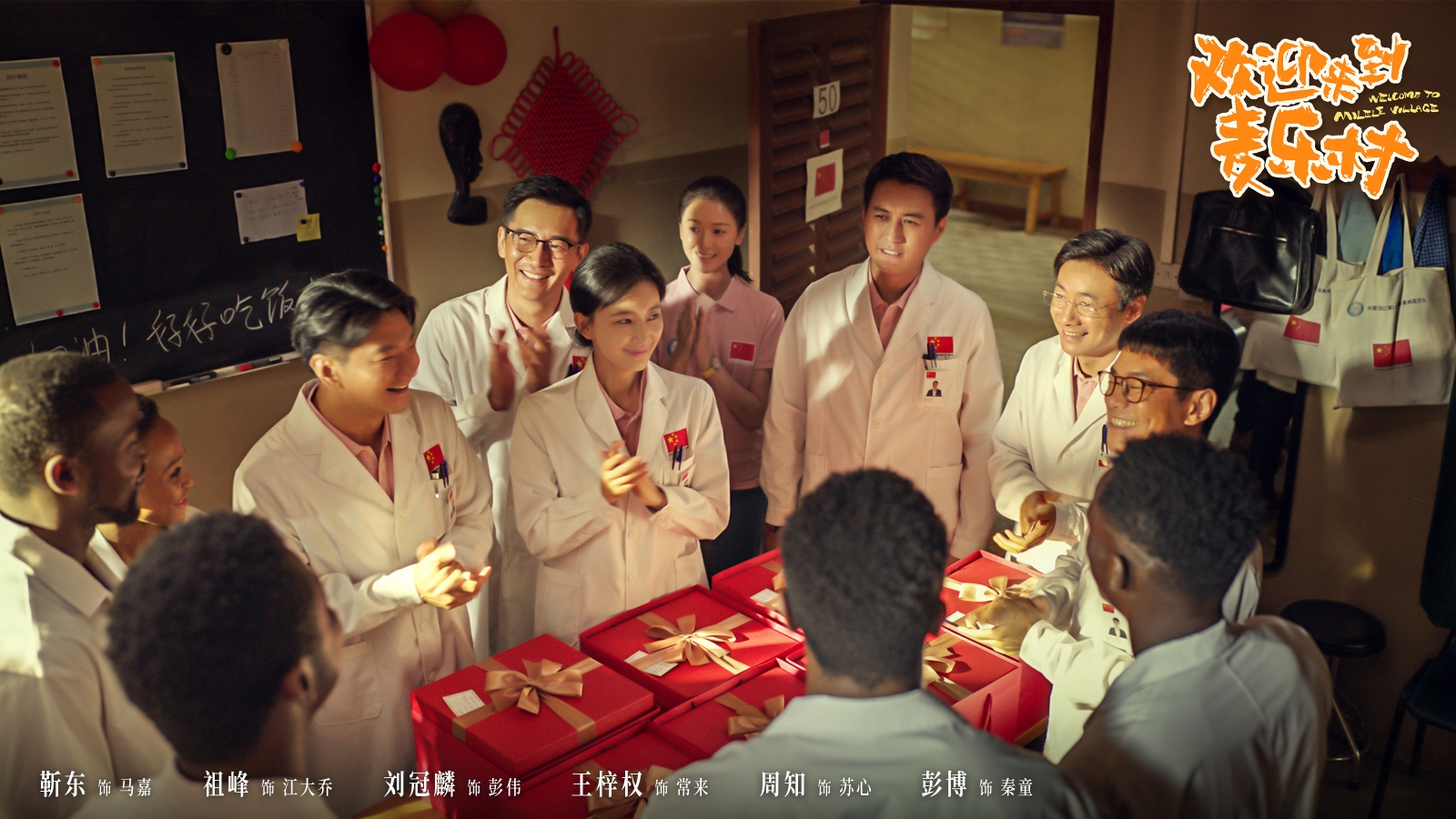
Stills from "Welcome to Maillot Village"
In his own works, Liang Zhenhua will try to find meaningful connections and relationships between people and the outside world, as well as life. "Wind Blowing Pinellia" is about "people have achieved worldly achievements, but they can reflect on the past, look inside, and complete self-reconciliation"; "Macao People" is about "in the face of all external wind and rain, do people have confidence?" To face it”. "Welcome to Maile Village", in addition to the narrative of medical aid to Africa, also talks about "how people can find their inner balance and find harmony with the external environment when they encounter difficulties."
"I think this theme can establish empathy with most of today's audiences." Liang Zhenhua said, "An ordinary person who has all kinds of worries, dilemmas, and selfishness like us, gradually let go of it after two years of working and living in Africa. Obsession, understanding the lofty mission of foreign aid medical care, this process can make us ordinary people empathize and be convinced. We hope to tell the story from a deeper perspective as much as possible, with more real and vivid expressions, so as to be able to relate to this era and today closely related to people.”
The details are real, and the drama is real
During the creation of "Welcome to Maile Village", Liang Zhenhua had a deep understanding: creation cannot be separated from the times, let alone those real characters.
In April 1965, Chinese foreign aid doctor Qiu Yuehua recorded this paragraph on the back of a photo of a one-month-old baby. "This is the child I took out. One of the mothers was suffering from tuberculosis, and the child was given to us to feed. It's almost a month old now..."
In 1974, cardiovascular expert Mei Gengnian was the captain of the first batch of Chinese medical teams to aid Ethiopia. Unfortunately, he was killed in a car accident at the age of 51. His three children all inherited their father's career and became doctors one after another. In 1998, his eldest son Mei Xueqian, as a member of the 10th batch of medical teams to aid Ethiopia, once again set foot on the land where his father was buried, and devoted himself to the cause of aid to Africa that his father cared about.
In 1993, Xu Changzhen, an expert in obstetrics and gynecology, went to Africa for the first time. After that, she went to Africa four times. In 8 years, she and her teammates treated more than 40,000 pregnant women and babies. She also became a member of Hubei Province. The medical staff who have provided the most domestic and foreign aid and the longest time,
The real experiences of many foreign aid doctors gave "Welcome to Maile Village" rich material and a solid background. Under the careful deployment and full guidance of the State Administration of Radio and Television, and with the strong support of the Ministry of Foreign Affairs, the National Health Commission, and the Beijing Radio and Television Bureau, the creative team went to Africa for in-depth research at the end of 2022. This research has yielded a lot of results. The real and vivid details also greatly enhance the confidence of creation.
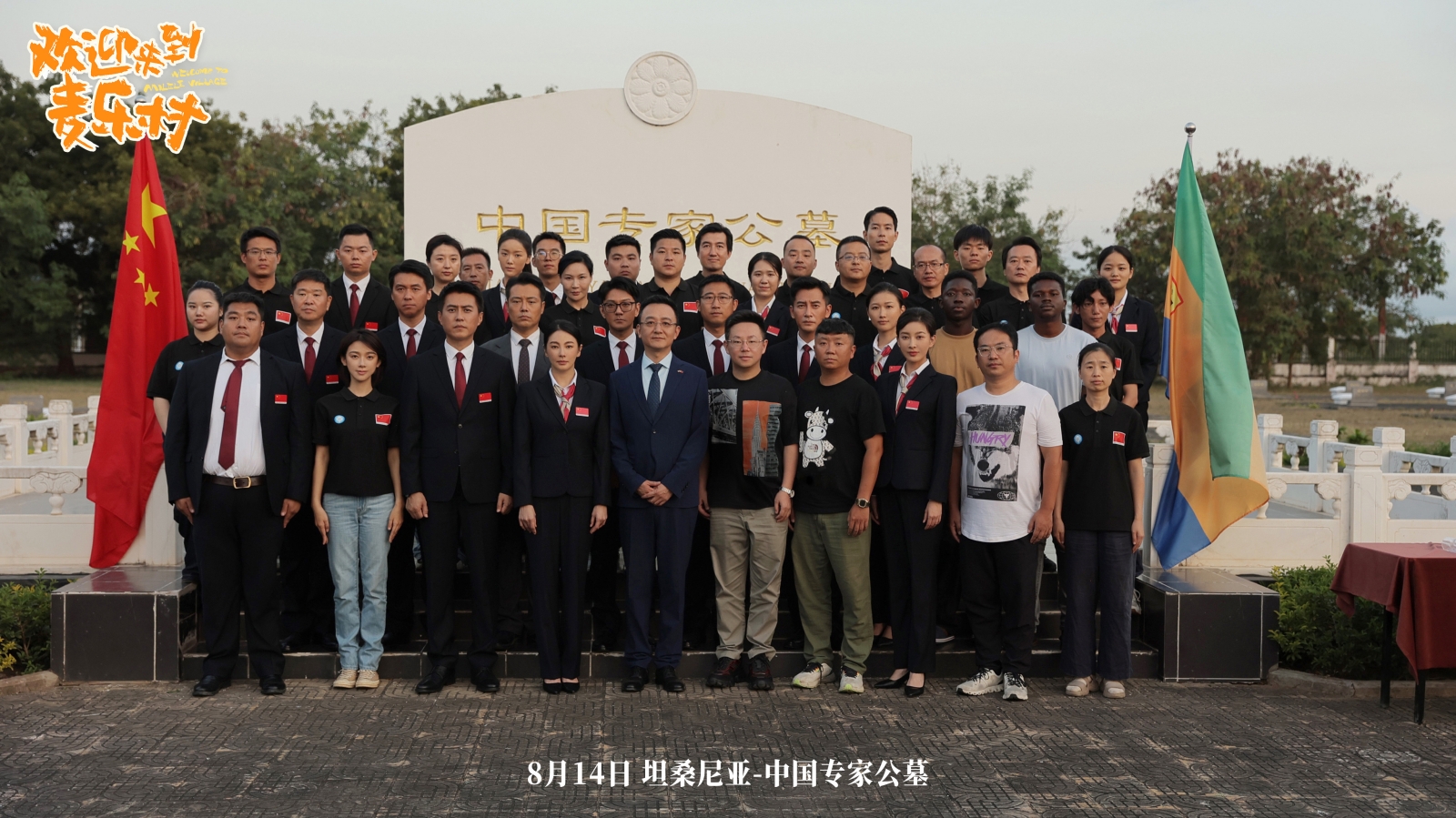
The crew of "Welcome to Maille Village" pays homage to the Chinese Experts Cemetery
It is not uncommon for film and television dramas to be based on real people and true events. One of the difficulties in such works is that when integrating real life and character prototypes into artistic creation, if the creator cannot grasp the balance between "drama" and "authenticity", it will be very difficult to achieve success. It is possible to be wrong by a tiny margin and be wrong by a thousand miles.
"We try to respect the logic of real characters and real stories as much as possible. This is our creative principle." Liang Zhenhua said, "Of course, if it is written completely according to the logic of life, it may lack drama, but drama does not mean that it violates reality. When shaping these medical team members aiding Africa, our original intention was to explore their inner beliefs and the environment in which they accomplished these feats. This is a part that creators cannot question, nor can they subvert for the sake of creating drama. "
The creative team hopes that the audience will learn about China's foreign aid medical undertakings through "Welcome to Maile Village" and tell them about the greatness of China's foreign aid medical undertakings. "But in dramas, we cannot talk about 'greatness' rigidly, but should dig deep into it." The 'difficulty' and 'delicacy' of various characters." Liang Zhenhua said, "Because details constitute the most vivid perception of the audience, concepts must be formed through details, rather than using concepts to guide details. We must sink to the most interesting and richest into the true details of the meaning.”
Most of the plots involved in the play are based on true stories. For example, in the play, the medical team comes to Africa and encounters African traffic policemen who are dancing and directing traffic; for example, some African brothers cannot penetrate with fine needles and have to use thick needles... These details all come from the in-depth research of the creators.
What’s more worth mentioning is that at the end of each episode of the feature film, there is an interview with a Chinese foreign aid doctor, which is broadcast simultaneously with the documentary. This is Liang Zhenhua’s careful design. "I hope that in addition to watching dramatic stories, everyone will also listen to the real stories of these foreign aid medical team members and their unique mental journeys."
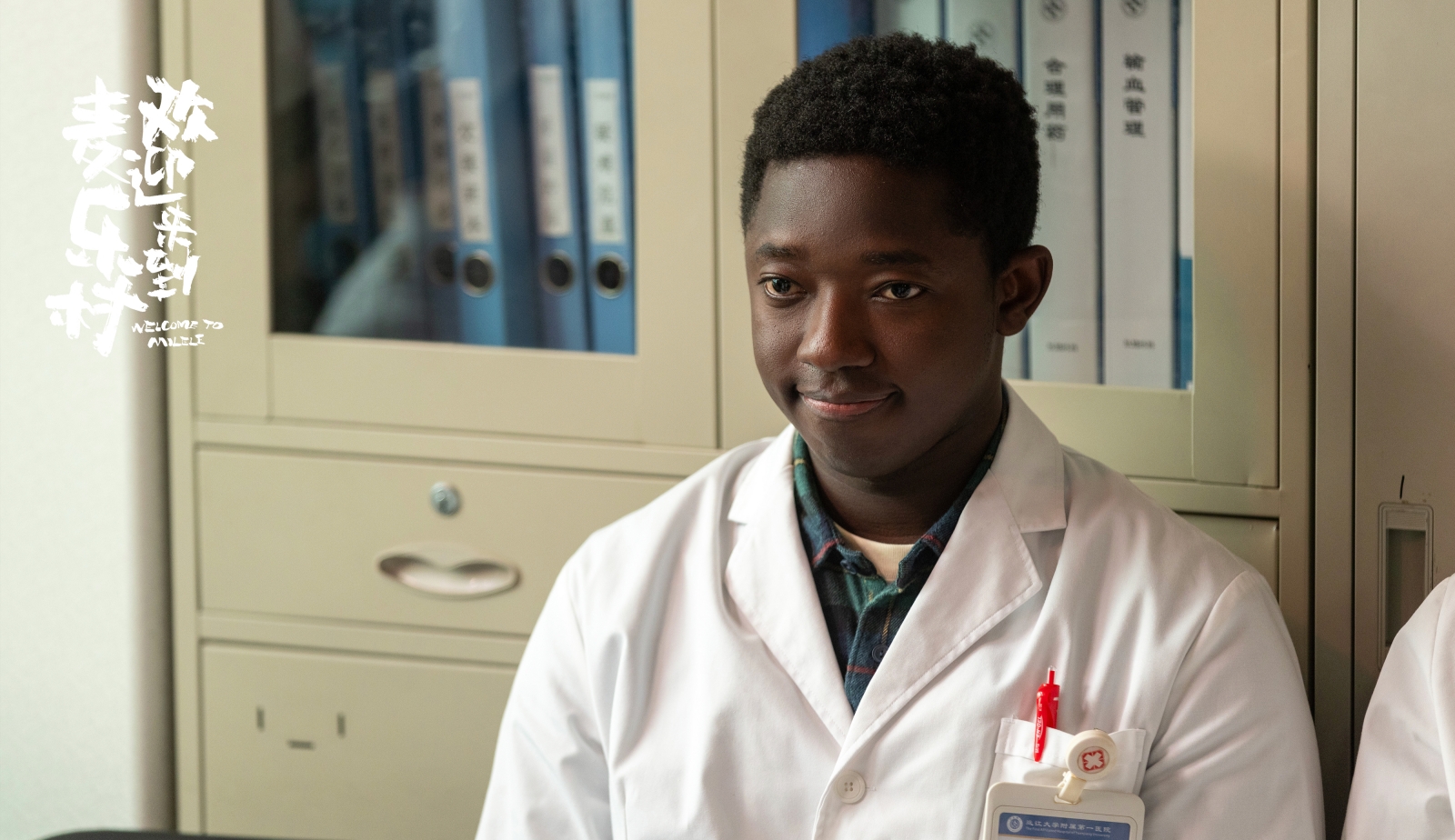
Stills from "Welcome to Maillot Village"
The creative journey is also an "adventure" journey
"I expected that this film would be quite difficult, but the reality is still quite different from the expectations." Liang Zhenhua said with a smile.
The first is the difficulty of script creation. "Foreign aid medical treatment is not a single specialty, but a general practice." In the play, Ma Jia is a cardiothoracic surgeon, Peng Wei is a pediatrician, Sun Shuang is a Chinese medicine practitioner, Chang Lai is an anesthesiologist, and Qin Tong is an ophthalmologist... Personnel from various departments form this support foreign medical team. "Many medical dramas focus on a certain specialty, and it is rare to write about a general specialty, so the difficulty is greatly increased. In the specific writing and filming process, medical knowledge from each discipline will be involved, and it is necessary to ensure that no mistakes are made. For this reason , the project hired a total of seven medical consultants, who took care of the entire process from script development to project shooting to post-production."
Secondly, the production cycle is tight. For a TV series of the size of "Welcome to Maile Village", the post-production period usually takes at least half a year. However, in order to be able to broadcast smoothly on the occasion of the 60th anniversary of the dispatch of the Chinese foreign aid medical team, "the post-production time is limited, and every day They are all precious.”
Based on this, the team has consciously tried its best to advance the post-production work from the very beginning. During the filming period, in addition to the basic smooth editing of the daily materials, the director will take time to go to the editing room for fine editing. When the filming transitioned to Hainan, the first five episodes shot in Hangzhou had basically been cut, which saved a lot of time for the final cut of the entire series. At the same time, the special effects, OST and other work of this drama are also carried out simultaneously with the filming process. In addition, the concerted efforts of all staff can ensure that the task is completed on schedule and a good production level is maintained.
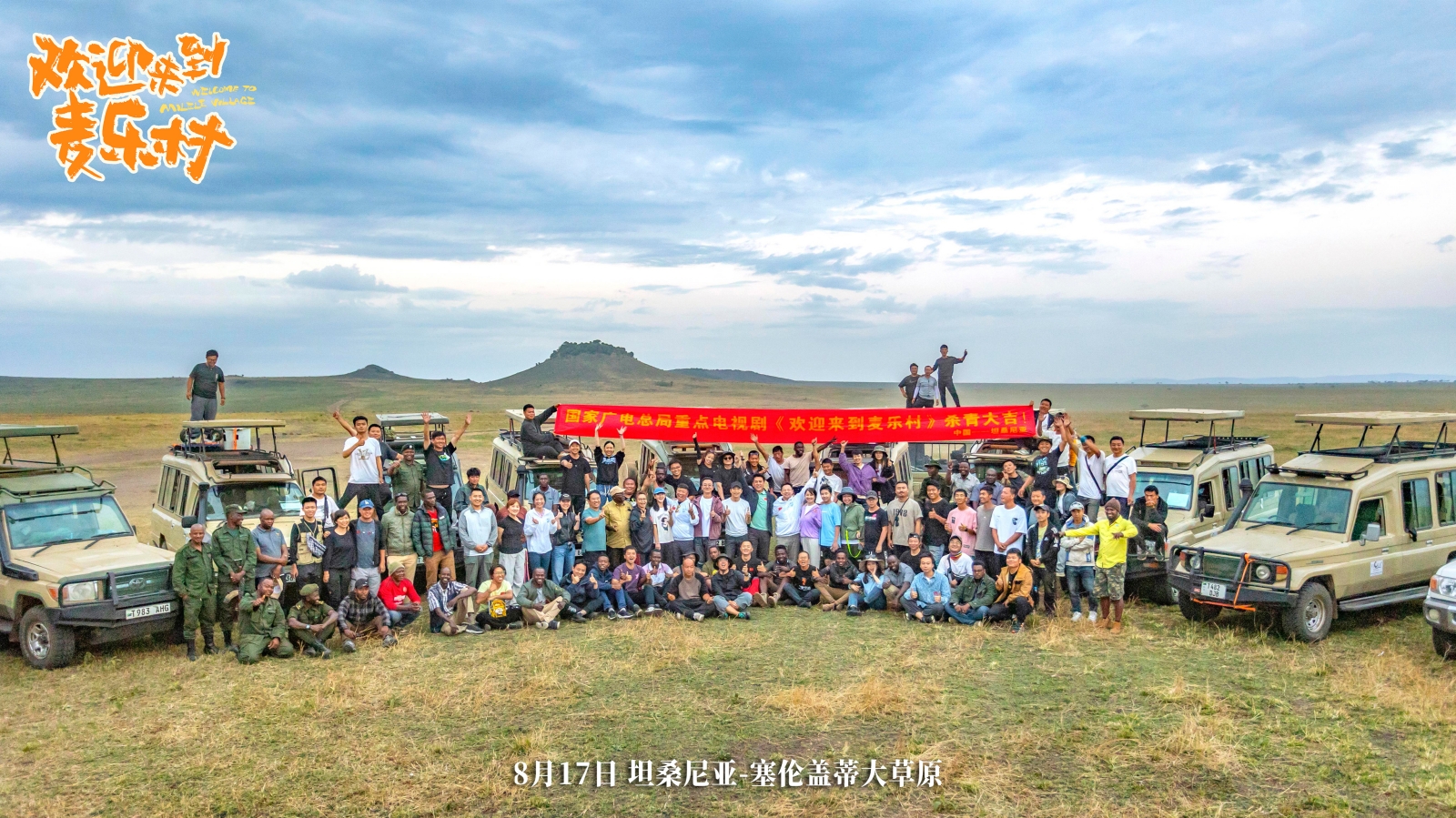
"Welcome to Maillot Village" cast photo
Finally, there is the difficulty that comes with shooting overseas. More than 170 people from the crew went to Africa for filming. "Every aspect of the work, including personnel management, scheduling and communication, was not easy." In particular, a large number of equipment and props had to be transported from China to Africa by sea and air. Large equipment, clothing, etc. Props and daily necessities were divided into two containers. It was my first time to go through various customs and transportation procedures, and I had to cross the river by feeling the stones. After filming was completed, the crew donated nearly half of the items to a local orphanage, and sent another container of large equipment back. Today, the episode has aired, but some devices are still in the process of being cleared.

But no matter how many difficulties were encountered, under the full guidance and coordination of the State Administration of Radio and Television, the Tanzanian government provided great assistance to the crew for overseas filming, maximizing the birth of this drama.
The shooting locations of "Welcome to Maile Village" ranged from Hangzhou, Zhejiang, and Wanning, Hainan, to Zanzibar Island, Dar es Salaam, Serengeti Grassland, and Arusha in Tanzania, Africa. Traveling to two countries and six places, only those who have experienced it can understand the hardships involved. In the series, the opening of each episode shows the blending of the scenery of Africa and China. Liang Zhenhua said with a smile that he chose the opening for two months, "I picked every frame myself. The Chinese mountains and rivers and the African scenery are wonderful. Here is the great migration of animals galloping, and over there is the Chinese night scene with busy traffic. They are connected through the image of bridges and water." This is probably the most beautiful souvenir of this arduous journey.
"Equality and mutual aid" rather than "rescue and charity"
In the play, Ma Jia fell ill and secretly used medicine from the Chinese medical team, which caused a conflict with the African doctor. "Why should I get the permission of the African doctor to use my own medicine?" Captain Jiang Daqiao criticized him: "When you What are you? A savior?" This line points out some people's stereotypes about foreign aid medical treatment, which is also a point that the creative team attaches great importance to in their creation.
"Foreign aid is an action initiated by us. We are the subjects and the other party is the object. This makes it easy for ordinary people to understand us as 'givers' or even 'saviors', which will create an inequality of discourse and status. "Liang Zhenhua said. This perspective of a savior is not feasible in the creation of foreign aid medical content. “We hope to make the audience realize the equality of medical aid in Africa. We are aiding others, but we must treat others as equal individuals. We The relationship with Africa is one of friendship, equality and mutual assistance." Therefore, any plot details that may hurt the feelings of the African people should be avoided.
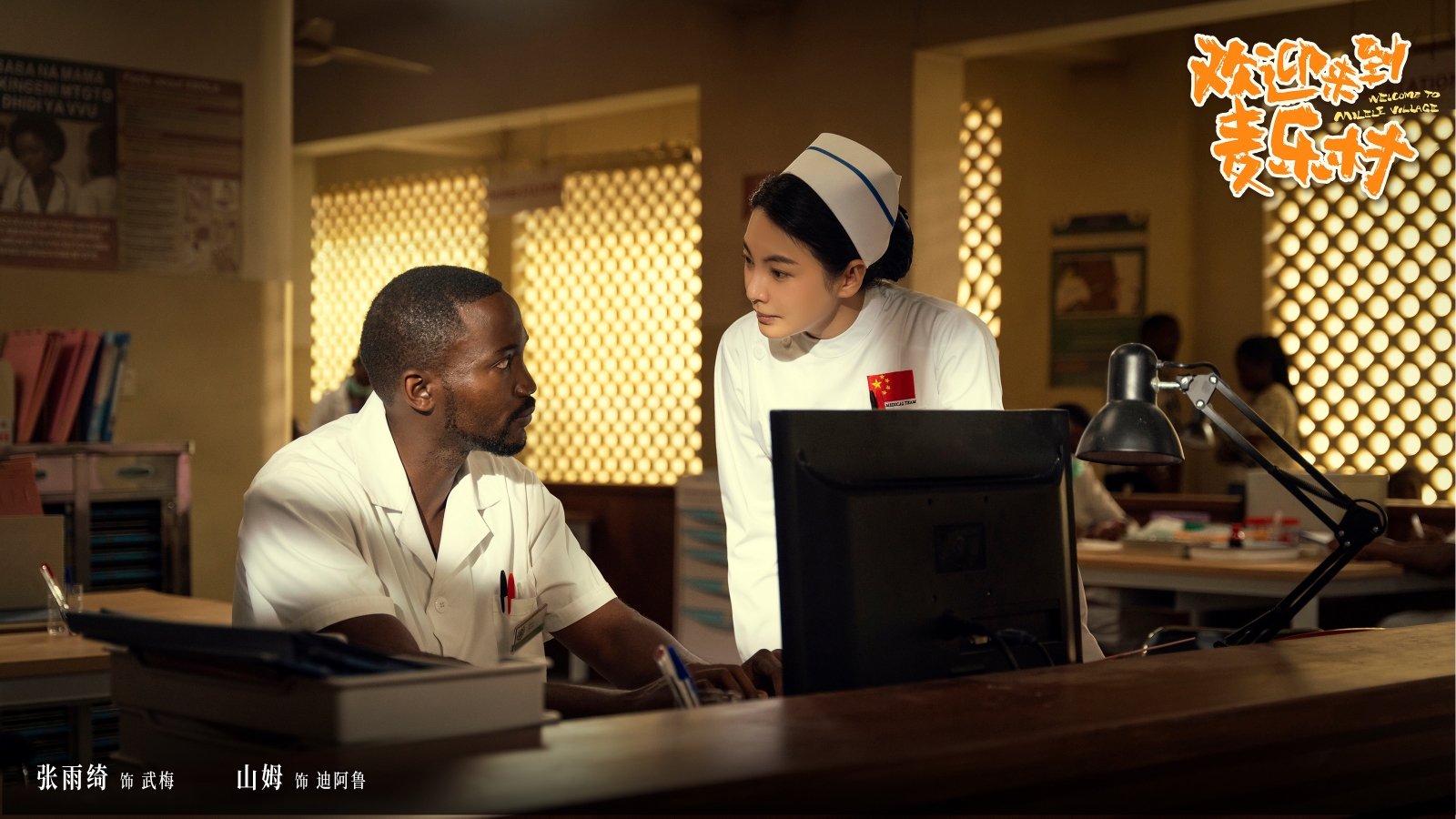
Stills from "Welcome to Maillot Village"
During the research and interview process, he personally felt the love and dependence of the African people on the Chinese medical team. For example, in Algeria, there are many local people with the same name - "Chinois". This name comes from a French transliteration, and the literal translation into Chinese is "Chinese". Why do Africans call their children "Chinese"? Because many local people, generation after generation, have been delivered by Chinese doctors. This warm detail about the name was also added to the script creation and became the prototype of multiple "M China" (M China, Swahili for Chinese) in the play.
In 1965, Premier Zhou Enlai visited Zanzibar and met with the first batch of Chinese medical aid teams. Premier Zhou proposed: "Leave a medical team for the local people that will never leave." It is this sentence that has enabled China's foreign medical assistance to be implemented for 60 years. The Chinese foreign aid medical team continues to convey the spirit of "fearless hardship, willingness to contribute, life-saving and healing, and boundless love", which is reflected in the rescue in times of crisis, the confirmation of the white-coated duty, and the display of the humanitarian rescue spirit.
"As a country's commitment, our foreign aid medical care has been implemented for 60 years. This is an amazing thing." In Swahili, "Mile" is the Chinese transliteration of "Milele", which means "Forever", "Maile Village" is the "eternal village", which represents China's commitment to foreign medical aid and also symbolizes the everlasting deep friendship between China and Africa. Through the popularity of "Welcome to Maille Village", this great cause and this group of selfless and loving people are gradually entering the public's awareness. This is what the creators are most gratified about.


